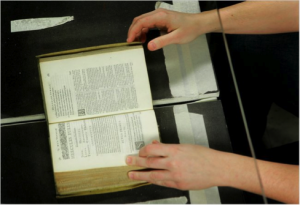 The United States has yet to reach an agreement over the Google digital books project, but France, a literary haven and copyright devotee, has forged ahead.
The United States has yet to reach an agreement over the Google digital books project, but France, a literary haven and copyright devotee, has forged ahead.
With what its supporters have praised as a tool for bringing out-of-print books into the hands of new readers, the Google digital books project has sought to digitally scan collections of current and out-of-print books to create a massive digital collection on Google’s database.
Similar to the Author’s Guild class action lawsuit against Google for the alleged infringement of thousands of copyrights, the French Publishers Association and the Société des Gens de Lettres, an authors’ group, filed a lawsuit charging that Google’s digital book scanning infringed French copyright laws. However, the French publishers and authors’ group have recently dropped their six-year lawsuit and reached an agreement that would allow Google to scan books and offer digital copies for sale. This agreement will make France the first country to have an industry-wide standard for digitizing books.
The details of the deal are still not fully disclosed. Generally, the agreement leaves control in the hands of the publishers over such literary matters as the selection of titles to be made available in digital form, but the financial arrangements between Google and the publishers are, as yet, unrevealed. Additionally, Google is required to organize a program to encourage reading among children in France as part of the agreement.
Last year, the United States District Court for the Southern District of New York rejected a proposed class action settlement between Google and the Authors’ Guild that would automatically allow Google to scan books into the Google database unless the rights holder specifically opted out of the agreement. At the time, Judge Denny Chin urged the parties to amend the settlement to create an “opt in” rather than an “opt out”[1]
The Google digital books project, despite its potential to make books more accessible, has proven to be a copyright conundrum, especially with respect to out-of-print books that are still copyright protected (a category which includes most of the world’s books) and “orphan books” (out-of-print books whose copyright owners cannot be found). With the France agreement completed, will more European countries grant Google permission to create a digital database?
Notably, the U.S. battle over the Google digital books project didn’t just involve copyright law. There are also antirust and privacy concerns that would have to be resolved before a similar agreement could be reached in the U.S. As Judge Chin also noted, the Google project would enable Google to track the activities of those who use Google’s book search, such as what books a user is reading and, even, how much time is spent on each page. Additionally, the settlement agreement would allow Google to maintain personally identifiable information on rights holders.
[1] As Judge Denny Chin held in The Authors Guild v. Google Inc., 770 F. Supp. 2d 666 (S.D.N.Y. 2011), an “opt out” agreement would effectively give Google a de facto monopoly over orphaned and non-opted-out works.

